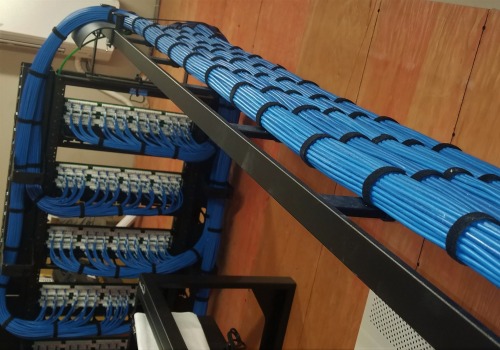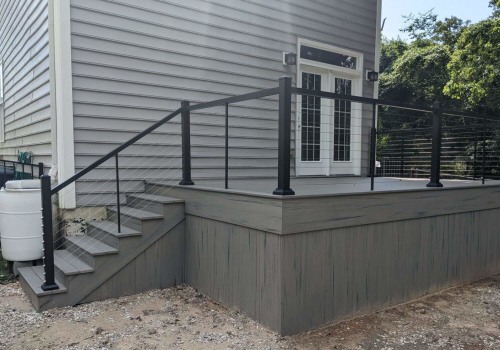When it comes to network cabling in Baltimore, Maryland, there are specific building codes that must be followed. These codes are in place to ensure the safety and functionality of network cabling systems in buildings throughout the city. As an expert in the field, I have seen firsthand the importance of adhering to these codes and the consequences that can arise when they are not followed. When it comes to network cabling in Baltimore, Maryland, there are specific building codes that must be followed. These codes are in place to ensure the safety and functionality of network cabling systems in buildings throughout the city. As an expert in the field, I have seen firsthand the importance of adhering to these codes and the consequences that can arise when they are not followed.
The Role of Building Codes
Building codes are regulations set by local governments to ensure that buildings are constructed and maintained in a safe and secure manner. These codes cover a wide range of areas, including electrical systems, plumbing, and structural integrity.In the case of network cabling, building codes dictate the proper installation and maintenance of cabling systems to ensure they meet safety standards and function effectively. In Baltimore, building codes are enforced by the Department of Housing and Community Development (DHCD). This department is responsible for issuing permits for construction projects and conducting inspections to ensure compliance with building codes.
Specific Building Codes for Network Cabling
While there are general building codes that apply to all aspects of construction, there are also specific codes that pertain to network cabling. These codes outline the requirements for the installation, labeling, and maintenance of network cabling systems in buildings. One important code is the National Electrical Code (NEC), which is adopted by Baltimore as part of its building code. The NEC provides guidelines for the installation of electrical wiring and equipment, including network cabling.It covers everything from the type of cables that can be used to the distance between cables and other electrical components. Another crucial code is the Telecommunications Industry Association (TIA) standard. This standard outlines the minimum requirements for the design and installation of cabling systems, including network cabling. It covers areas such as cable pathways, grounding and bonding, and cable termination. In addition to these codes, there may be specific requirements set by the building owner or the network cabling manufacturer. It is essential to consult these guidelines when planning and installing a cabling system to ensure compliance with all relevant codes.
The Consequences of Not Following Building Codes
Failure to follow building codes for network cabling can have serious consequences.Not only does it put the safety of building occupants at risk, but it can also lead to costly repairs and downtime for businesses. If a cabling system is not installed correctly, it can pose a fire hazard or cause electrical shocks. This can result in injury or even death. In addition, improper installation can lead to network outages and disruptions, which can be detrimental to businesses that rely on a stable and secure network connection. Furthermore, failure to comply with building codes can result in fines and penalties from the DHCD. These penalties can range from hundreds to thousands of dollars, depending on the severity of the violation.
The Importance of Hiring a Professional
Given the complexity and importance of following building codes for network cabling, it is crucial to hire a professional for installation and maintenance.A professional cabling contractor will have a thorough understanding of all relevant codes and will ensure that your cabling system meets all requirements. Additionally, hiring a professional will save you time and money in the long run. They will have the necessary tools and expertise to install your cabling system correctly the first time, avoiding costly mistakes and potential violations of building codes.
In Conclusion
In conclusion, there are specific building codes that must be followed for network cabling in Baltimore, Maryland. These codes are in place to ensure the safety and functionality of cabling systems in buildings. Failure to comply with these codes can have serious consequences, including fines and penalties, as well as safety hazards and network disruptions.It is crucial to hire a professional cabling contractor who is knowledgeable about these codes to ensure that your cabling system is installed and maintained correctly.







